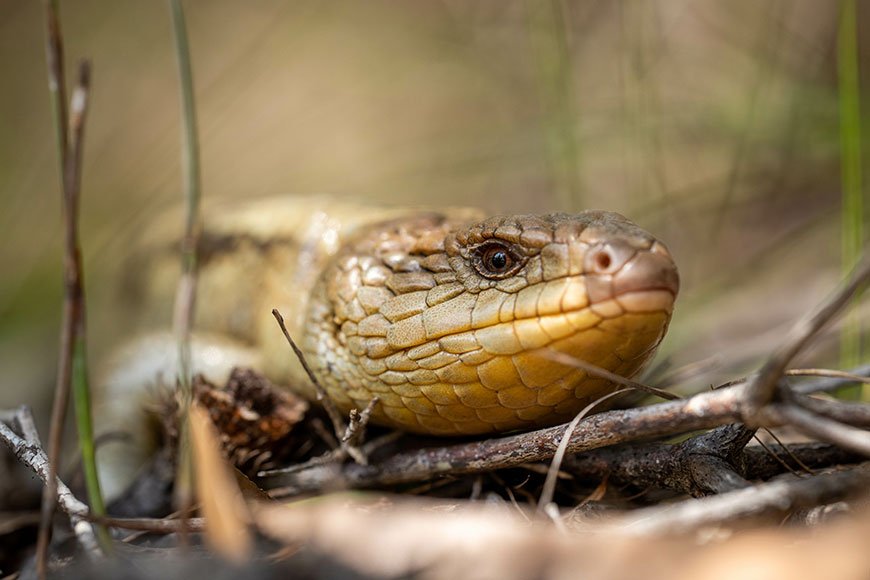Have you ever considered keeping a blue-tongued lizard as a pet? If not, let me tell you, you’re in for a treat. These fascinating creatures are not only captivating to watch but are also relatively easy to care for. Let’s dive into the world of blue-tongued lizards and discover why they make such awesome pets.
A Little About Blue-Tongued Lizards
Blue-tongued lizards, often referred to as skinks, are native to places like Australia, Tasmania, Papua New Guinea, and Indonesia. They’re known for their striking blue tongues, which contrast beautifully with their brown and gray coloring. But that’s not all! These lizards are diurnal, meaning they’re active during the day, and can grow up to 24 inches long. Imagine having such a majestic creature lounging around in your living room!
Setting Up Their Home
When it comes to housing your blue-tongued buddy, you’ll need a spacious blue tongue lizard enclosure. A 40 to 55-gallon tank is ideal. Make sure to include a substrate like reptile carpet or towels and provide hiding spaces for them to retreat. They love basking, so a heat lamp is essential. And don’t forget the UVB light; it’s crucial for their health.
Feeding Time
Blue-tongued lizards are omnivores, which means they enjoy a mix of veggies, fruits, insects, and even small animals. Some of their favorite treats include bananas, beans, carrots, and cherries. Remember, variety is the spice of life, so mix up their diet to keep them healthy and happy.
Social Behavior and Temperament
Blue-tongued lizards are solitary creatures, preferring to spend their time alone rather than with other lizards. However, this doesn’t mean they’re antisocial with their human caregivers. With regular, gentle handling, these lizards can become quite tame and may even enjoy being petted. They’re known to be curious creatures, often observing their surroundings with keen interest.
Are They Dangerous?
Now, you might be wondering, “Are blue-tongued lizards dangerous?” The answer is a resounding no! They’re not venomous or poisonous. In fact, they’re known for their calm and docile personality. However, like all pets, it’s essential to handle them with care and respect.
Moulting: Out with the Old, In with the New
Like other reptiles, blue-tongued lizards shed their skin. Young lizards might shed more frequently, even up to once a month, as they grow. Adult lizards typically shed several times a year. This process, known as moulting, allows the lizard to remove old, worn-out skin and make way for new, healthy skin. During this time, it’s essential to ensure their environment remains humid to aid in the shedding process.
The Importance of Play and Enrichment
While they might not fetch a ball or play with toys like a dog, blue-tongued lizards benefit from environmental enrichment. This can be achieved by rearranging their enclosure, introducing new items for them to explore, or even providing them with “puzzles” to solve, like hiding their food for them to find. Such activities keep their minds sharp and prevent boredom.

Caring for Your Lizard
Taking care of a blue-tongued lizard is straightforward. Regular cleaning of their enclosure, ensuring they have fresh water, and feeding them a balanced diet are the basics. It’s also essential to monitor their health. If you notice any changes in their behavior or appearance, it’s a good idea to consult with a vet specializing in exotic animals.
Potential Health Concerns
Like all pets, blue-tongued lizards can face health issues. Regular check-ups with a reptile vet are crucial. Some common health concerns include respiratory infections, metabolic bone disease, and issues related to improper shedding. Always keep an eye on your lizard’s behavior and appearance, and consult a vet if something seems off.
In Conclusion
Keeping a blue-tongued lizard as a pet is a rewarding experience. They’re low-maintenance, friendly, and absolutely fascinating to observe. If you’re considering adding one to your family, you’re in for a delightful journey. Happy lizard-keeping!




